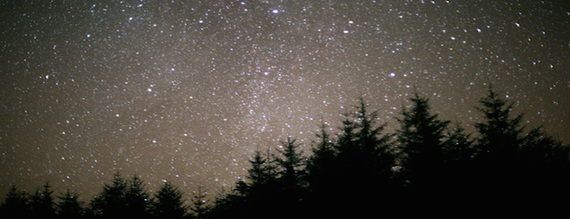I'm officially in love with Reverend Barbara Brown Taylor, a priest, best-selling author (13 books) and professor of religion. I just watched her interview on Super Soul Sunday, for the second time, and I can't get enough of her wisdom.
Her books are going to be on my nightstand in no time. Learning To Walk In The Dark will be the first.
I think you'll love her, too.
Here's one of Barbara's nuggets I felt compelled to share.
We experience good and bad times in our life that can be characterized as being in the light or in the dark.
Barbara describes, what she calls, Solar Spirituality. Most religious faiths teach us to flee the dark, and ignore the dark parts of ourselves, at all costs, and seek out the light. Here are some examples:
When things get really negative, find a positive.
Bad is dangerous so get out as quickly as possible.
Black is bad, white is good.
Our parents would literally tell us, "Come inside before it gets dark."
As a life coach, I believe I bring more light into peoples' lives. I equip them with tools to find the light. I have always believed that it's ok to be in the dark; to feel sad, depressed, angry, disappointed, hurt etc., as long as it's a choice.
However, after listening to Barbara, I couldn't help but wonder if I am focusing too much on the light and not enough on the gifts that come from the emotional darkness?
We spend half our lives in the dark. Think day/night as well as our emotional darkness.
Think about this -- it made me pause....
Barbara says sex often happens in the dark -- it's a dark experience even though we think of it as one that is light. When we look up at the night sky, see the stars, and can't help but think, in wondrous awe, how we fit into this vast universal system, that is a dark experience, too, even though it feels like one that is light.
These ideas beg the question, how do we define the dark?
Barbara says, it's simply a place of unknowing -- voluntary and involuntary.
We voluntarily travel to Peru and find ourselves in Lima, thinking, "I don't know how to be in Lima. This is scary!"
Or, involuntary, when the doctor calls and says, "Sit down. I have some bad news."
Unknowing simply means the unknown. And, there are so many things we learn in the dark, that we can never learn in the light. Don't our richest experiences come from the places we are most afraid to go?
For the last few weeks, I've been feeling a bit slow, tired and have been replaying conversations in my head wishing I had been more eloquent. It feels dark because I am beating myself up.
My instinct is to run from this darkness, this stinkin' thinkin', and into the light. I want to fix it, make it all better, make it go away.
Because dark is bad, unproductive, hurtful.
But what is there in here that is rich, that I can learn about myself that just is? That leaves an unhelpful duality behind?
In your next moment of darkness, Barbara suggests taking three deep breaths and feeling your way around. Knowing that the darkness is just a place of unknowing, how has your definition of darkness already changed?
Share your comments below or over on my blog.
With love and dark because they are part of the same,
Sarah xxx
